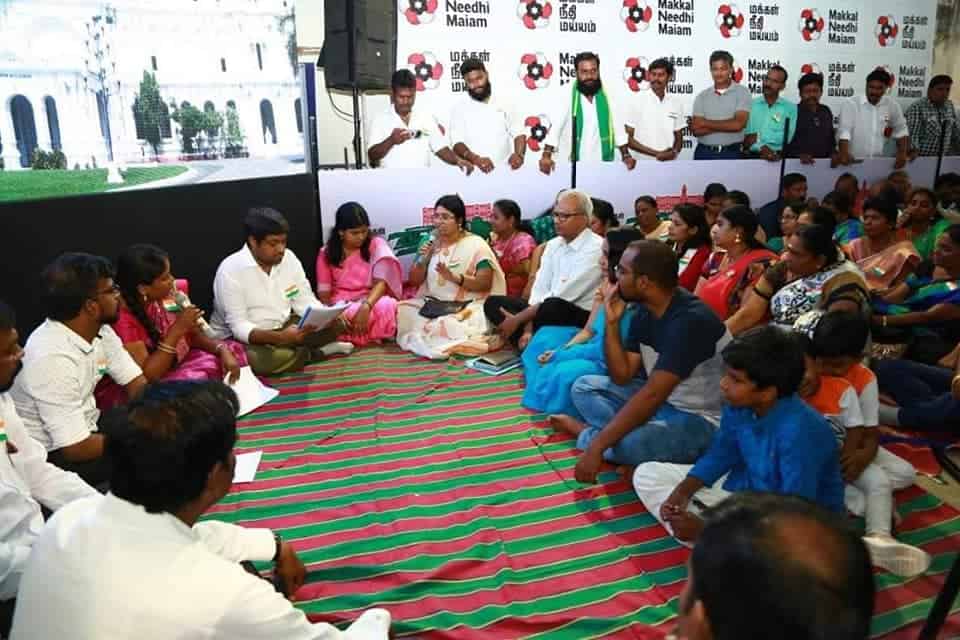The whirlwind that was 2021 has left us with many takeaways for how Chennai can be governed better and why citizens must play an active role in it. The city received record rainfall and an almost unwelcome deja vu of the 2015 floods. It goes into the new year without an elected local government, the sixth year in running. With the promise of local body elections around the corner and some exciting developments in terms of urban projects, we step into 2022.
On the pandemic and Singara Chennai 2.0
Chennai, like the rest of the country, was badly hit by the second wave of the pandemic. Many lost loved ones. Apart from some missteps at the initial stages, the state government’s handling of the pandemic has been efficient, applying all appropriate measures to contain the situation.
Read more: Ward committees: The missing link that could have made Chennai’s COVID fight stronger
We understand from the media that Chennai Corporation has shortlisted 10 themes for Singara Chennai 2.0. We truly wish to have more transparent information about the way it was shortlisted. We would also like to have more of ‘aga azhagu (inner beauty)’ instead of mere ‘pura azhagu (outer beauty)’ for Chennai.
The need of the hour is not just beautification but creation of a more livable city. The schemes should address the real issues faced by the residents. When there are so many basic civic issues bothering residents — from drainage to waste to sanitation and road infrastructure — the focus should not just be on creating more eco-parks around lakes with boating facilities. The city and its development should become more equitable.

On participatory local governance in Chennai
Governance at the city level continues to be centralised, following a top-down approach. There is no transparency on what projects are being prioritised, whether they are really needed at the ground level, the cost assessment of the projects and how the execution is monitored and quality ensured. Finally, there is no way citizens can hold the system accountable, since there is no elected council and representatives for citizens to approach or hold accountable.
With the hope that the local body elections will take place in the coming year, a few steps must be put in place prior to the polls. The state government has to notify the rules and implement the Tamil Nadu Municipal (amendment) Act 2010 which will pave the way for the creation of participative platforms – the Ward Committee and Area Sabha.
Our on-the-ground campaign for creation of these platforms helped us understand the reality that many are not even aware of such provision for participative platforms in urban areas. Once the provisions were explained, people were very appreciative and welcoming of such platforms in cities. We were able to draw parallels with the work of the gram sabhas in rural areas.
Read more: What can Chennai learn from Kerala and Bengaluru on citizen participation in urban governance?
As a group of citizens working towards participative democracy and transparent governance along with other collectives such as Arappor Iyakkam, Institute of Grassroots Governance Thannatchi and Thozhan, we have been making representations to the ministries concerned. We have also approached various political parties pushing for the promise of creation of ward committees and area sabhas in cities. Even though the response from the leaders and officials is encouraging, we are yet to see the light at the end of the tunnel.
Enabling ward committees and area sabhas is a crucial step for Chennaities to take part actively in urban local governance. This can be the beginning of a new chapter and help improve the livability of the city.
Even if the government chooses to notify the rules for the ward committee and area sabhas after the urban local body elections, in consultation with the elected councils and public, it should make an official announcement that these platforms will be functional and made available to citizens within the stipulated time period after the elected councils assume office.
Widespread awareness programmes and campaigns (via all forms of media) should be conducted on a daily basis to emphasize the roles of urban local bodies to people and encourage them to vote in the upcoming elections.
Wishlist for 2022
- Access to all the basic needs to all sections of people
- Participative platforms to bring accountability and transparency in governance
- Greater awareness of the importance of ward committees and area sabhas
- Public consultation and social audit for any Government schemes
- Restoration of more water bodies
- Increase in the city’s green cover
- Better connectivity of roads and train services
- Construction of more flyovers to decongest the city
- Improvements to public health and education infrastructure
- Prevention of untreated sewage discharge into water bodies
- Implementation of underground drainage in all areas
- Creation of pothole-free roads
- Creation of a more robust waste management system
- A proper, quality dwelling place within the city for the urban poor while resettling them without disrupting their livelihood
- Creation of a better communication system to inform people about Government announcements like policy changes, new regulations and any infrastructure works to be carried out in the city
- Participatory budget at ward levels through functional ward committees and area sabhas
The views expressed here by the authors are on behalf of Voice of People, a non-partisan, voluntary organisation based in Chennai, consisting of concerned citizens as members, with an objective to enable a people’s participatory democracy.